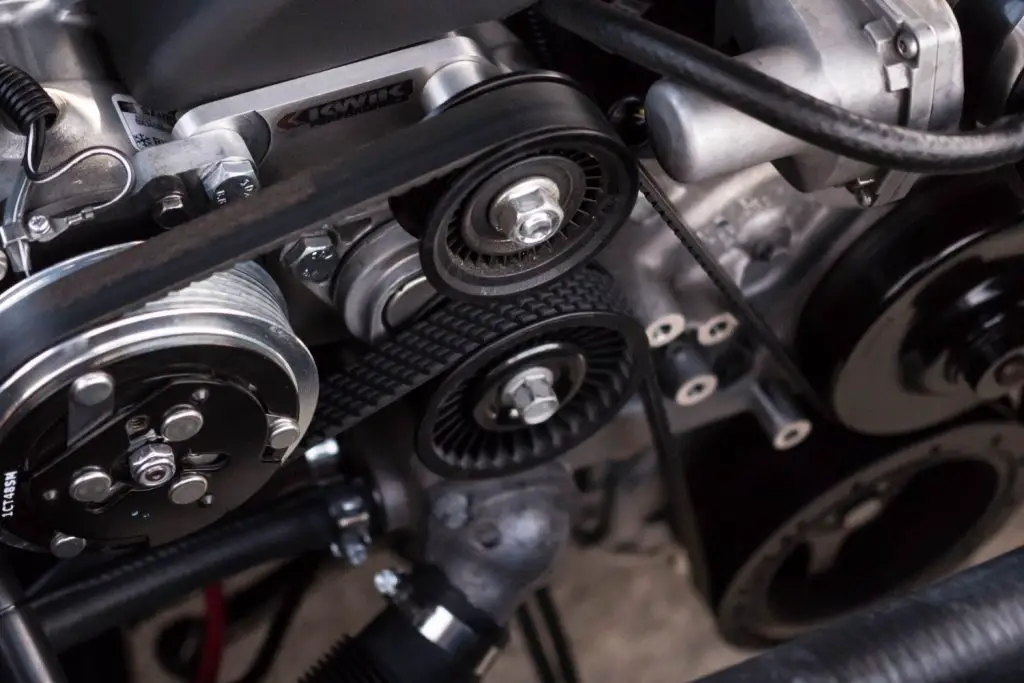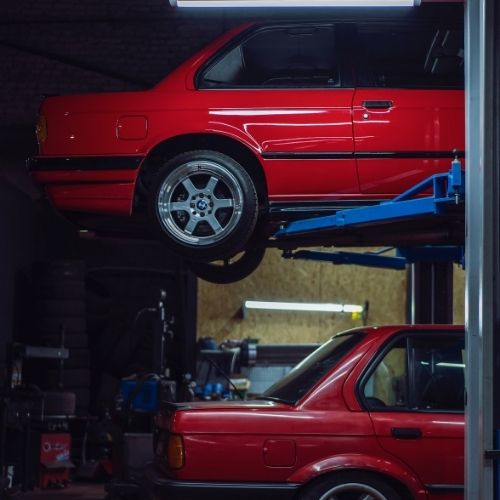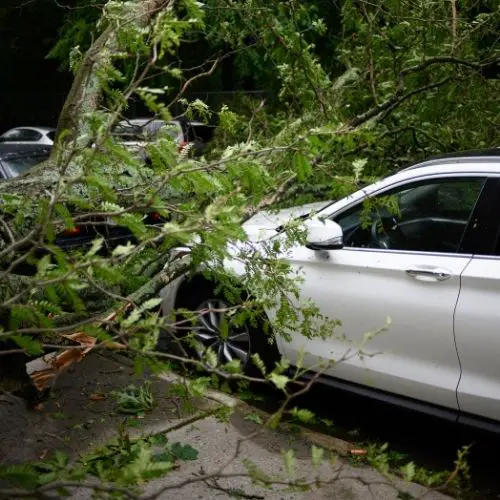We may get commissions for purchases made through links in this post. Thanks for the support! 👍
When it comes to car maintenance, tune-ups are one of the most important things you can do to keep your car running smoothly. But when is the best time to tune up your car? How often should you have this done? In this article, we will discuss the basics of tune-up intervals and provide some tips for keeping your car in good shape!

How often should you get a tune-up on your car?
In general, tune-ups are recommended every 30,000 – 50,000 miles. But if you drive more than that or less than that then it may be worth getting a tune-up more often than whatever your manufacturer advises in the manual.
The tune-up interval can vary depending on several factors such as vehicle age (anything with a carburetor or distributor cap, should be done every 10,000 miles) and driving habits (city driving will wear on the engine more than highway).
How much does a tune-up cost?
The tune-up cost can vary depending on the tune-up type and labor rate. Some tune-ups will be more expensive than others like when replacing spark plugs versus regular maintenance checks like an oil change.
These costs are usually estimated at around $50 to $300 but could go up over time as your car gets older or if more work needs to be done.
What is included in completing a tune-up?
Generally, tune-ups include oil change, air filter replacement, fuel filter replacement, and spark plugs.
However, depending on your car and how often you drive it, other items may need to be replaced or serviced as well – such as the serpentine belt or timing belts. Here is a full list of many things you will be looking at replacing, and why!
1. Cabin Air Filter Replacement
The cabin air filter helps clean the air that comes into the car from outside. It is located behind the glove box and should be replaced every time you get a tune-up or as needed.
This is a common component that people forget about, however, this is an important filter (that you should purchase for your tune-up) that helps keep the interior of your car safe from particles that you don’t want to be breathing in daily.
2. Coolant Replacement
The coolant fluid helps keep your engine at proper temperatures to prevent overheating. You must have this checked regularly because it can become contaminated with rust or other debris over time.
While you should be keeping an eye on your coolant between tune-ups, this is a good time to replace it completely to make sure any contaminants are removed.
3. Engine Air Filter Replacement
The engine air filter helps keep the dirt and dust out of your car’s engine. This is a critical part of your car that should be replaced every tune-up.
The engine filter should be checked periodically in between tune-ups so you know when to replace it. However, it should always be replaced at every tune-up, regardless of how bad it seems.
There are plenty of different types of engine air filters that you can opt for, including manufacturer spec, or other higher end filters like this one.
4. Fuel Filter
A clogged fuel filter can restrict the flow of gasoline to the engine, causing it to run poorly and even stall out. The fuel filter is normally located under the car’s body near the fuel pump. It should be replaced every tune-up or as needed.
5. Hoses
Cracked hoses can cause coolant or other fluids to leak out, causing major damage to your vehicle’s most important components. While you don’t have to replace every hose during a tune-up, you should at least be checking every hose for cracks, cuts, or leaks, and replace the ones with issues.

6. Spark Plugs
A bad spark plug can cause your engine to misfire, which will decrease your fuel economy and performance. Spark plugs should be replaced every tune-up – or as needed.
This component is something everyone knows their vehicle has, however very few ever take the time to check on them. This is one of the primary components that should always be done, every tune-up, because of this.
7. Ignition Coils
If your car is misfiring, you may need to replace the ignition coils. Ignition coils create sparks that ignite the fuel in the engine, so when they fail to work properly your car will not run smoothly.
8. Ignition Wires
If your ignition coils are fine, the next possible problem could be the ignition wires. Worn or damaged wires can’t transfer electricity from the coil to the spark plugs, so your car will not run smoothly.
9. PCV Valve
The PCV valve helps remove harmful fumes from the engine. This is an important part of your car’s emissions system and should be replaced every tune-up or as needed.
This component has a little spring on the inside, and over time it can either become stuck open or closed, meaning too much or too little oil will be making its way through the system. It’s an easy part to replace and is a great thing to do during a tune-up.
10. Oil Change & Filter Replacement
This is one of the most important tune-up items you can do. The oil in your car helps keep it running smoothly and protects the engine from overheating by lubricating all moving parts.
An oil change should be done every tune-up, but also every 3000-5000 miles or when needed, as well as an oil filter replacement which should be replaced at the same time as the oil change. Thankfully an oil change is something that is relatively easy, especially when you have the right kit to get the job done right.
11. Serpentine Belt / Timing Belt
A tune-up is a great time to check and replace your car’s belts. These are the parts that keep everything running smoothly, so when they break it can cause major issues with how well your car runs. The serpentine belt is located in the front of the engine, and the timing belt is located in the back (generally speaking).
Please, if you need the timing belt replaced, have a shop do this for you. Timing belts can be installed incorrectly, which can result in destroying your engine. Just don’t do it unless you know what you are doing.
- Top 5 Reasons Why Toyota Trucks (and SUVs) are So Expensive
- Pickups with over 100,000 miles: Should you buy one?
- Top 6 Series of Pickup Trucks that can Tow 10,000 Pounds
What symptoms mean you should give your car a tune-up?
Some obvious signs that you should have your car taken in to get a tune-up are:
- Getting lower than normal gas mileage
- Vehicle is sputtering
- Your car is backfiring
- The car is having a hard time idling when stopped
- You have a check engine light on your dash
- Your vehicle isn’t starting
- You are at your car manual’s recommended mileage interval
What does a tune-up do to a car?
The goal of a tune-up on your car is to perform preventative maintenance, in hopes of helping your car last longer, and stay in peak performance. A tune-up will also help your car run better, smoother, and with better gas mileage than if you did not perform a tune-up.
Frequently Asked Questions
Should you take your vehicle to a shop for a tune-up?
If you are someone that is not mechanically inclined, I would recommend going to a shop to complete the tune-up correctly. However if you are someone who is mechanically inclined, maybe ask someone to teach you how to complete a tune-up, then you will be able to do it yourself in the future.
Will a tune up make my car run better?
Tune-ups will almost always make your car run better. With all new wear items, your car will be at its peak capability. Even if those components like spark plugs didn’t “have” to be replaced, they will still function better than the same items with wear on them.
How long does a car tune up take?
Completing a tune-up can take between 2-5 hours depending on how in depth of a tune-up is being completed. Items like belts, oil changes, and coolant replacement can take more time, meaning it will take longer to complete the job.
Conclusion
If you perform tune-ups regularly on your car, it will help it run smoother and longer. It’s great preventative maintenance that should be done at least once a year or every tune-up mile interval (which is generally between 30,000 and 50,000 miles). Check your user manual to verify what is best for your vehicle.
Tune-ups are inexpensive compared to how much money they could potentially save you in the long run. So tune up your car today and keep it running for years to come!
![This Is How Cars Have Wifi [And Why]](https://amanandhisgear.com/wp-content/uploads/2020/01/How-do-cars-have-wifi.jpg)

